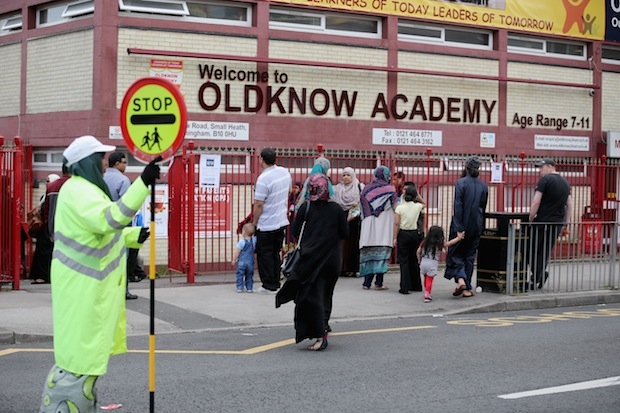As metaphors go, calling the alleged plot to take over schools in Birmingham a ‘Trojan Horse’ is a pretty powerful one. This allegedly was a devious attempt by a group of extremists to invade a protected space, ousting headteachers, making false allegations against staff and employing dirty tricks with the aim of imposing a fundamentaist Islamic ideology. I agree with David Cameron when he states: ‘…the issue of alleged Islamic extremism in Birmingham schools demands a robust response.’ So how should we respond?
In 2011 I was privileged to chair the independent review into teacher standards, a document that details the minimum requirements for teachers’ practice and conduct. As part of this, we also considered the personal and professional conduct of teachers. Given Ofsted’s findings about the schools in Birmingham, perhaps it is time to consider a set of similar standards for governors.
In the document I helped to write, teachers are expected not to undermine ‘fundamental British values, including democracy, the rule of law, individual liberty and mutual respect, and tolerance of those with different faiths and beliefs’. Those standards are absolute. Failure to abide by them can and should lead to disciplinary action by headteachers.
Should governors be held to a similar set of standards, with the threat of dismissal by the Secretary of State for Education if they don’t abide by them?
One of the standards teachers are expected to observe is that they ‘must have proper and professional regard for the ethos, policies and practices of the school in which they teach’. What if the governors’ vision for a particular school is so antithetical to British values, as it was in the case of some of these schools in Birmingham, that teachers can’t remain true to that vision and, at the same time, observe the rules about not undermining democracy, the rule of law and individual liberty? The fact that governors aren’t held to the same standard risks putting teachers in an impossible position, as has clearly happened in these schools.
In my view, it is regrettable that there is no set of defining standards for governors. But why stop there? In the current educational climate, with new free schools and academies opening every year, why not have a general code of practice that all schools are expected to observe – both teachers and governors alike? This new code could set out the minimum standards that schools should meet when it comes to issues like religion, freedom and equality, and contain a clear statement of British values. If we feel that the traditions and ideals that define this country are worth preserving, as I do, then why not define what they are and make sure they’re reflected in our education system?
Governors put themselves forward voluntarily and the best of them make a real difference, driving up educational standards and making sure all pupils are properly catered for. They make important collective decisions and are a key link in a school’s chain of accountability. However, secondary schools often struggle to fill governor positions and this can lead to Chairs co-opting their friends or, in some cases, people who share their radical ideology. At present, there is no barrier to governing bodies being taken over in this way, beyond a simple CRB check.
Education is critical to our hopes of a fairer society and urgent action is required. Minimum standards must be devised that embrace all faiths and none, celebrating all that is good about our homeland. Extremists and zealots who don’t share our values or respect our way of life must be driven out of the educational picture. They have no place in schools. It will be sad if events in Birmingham fan the flames of Islamaphobia and hatred. I do not want to contribute to making Little England yet smaller.
Dame Sally Coates is Principal of Burlington Danes Academy in White City, London.






Comments